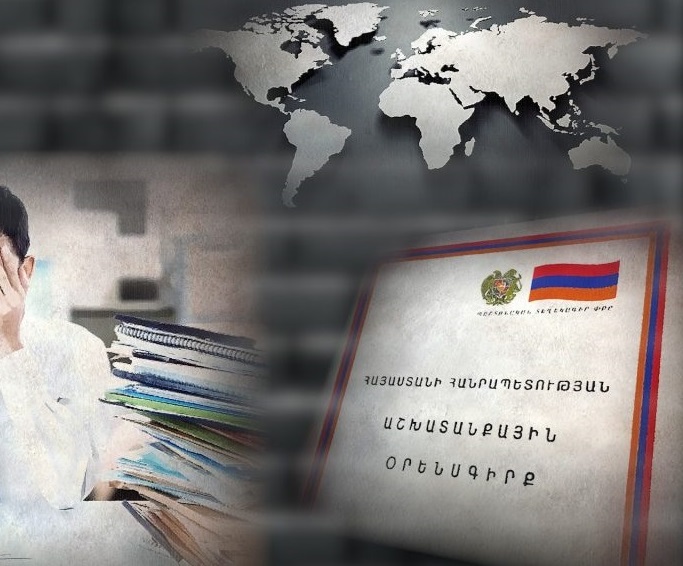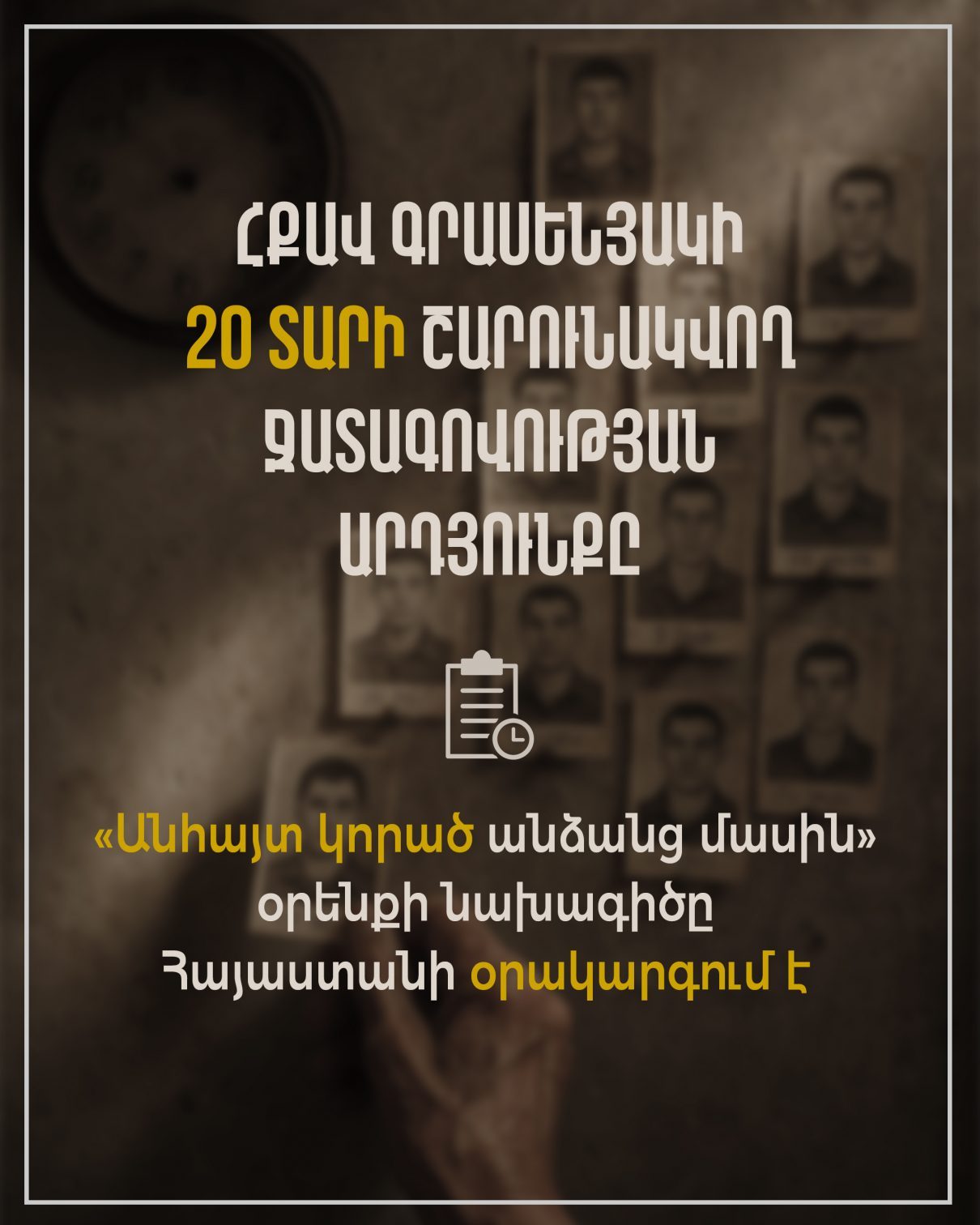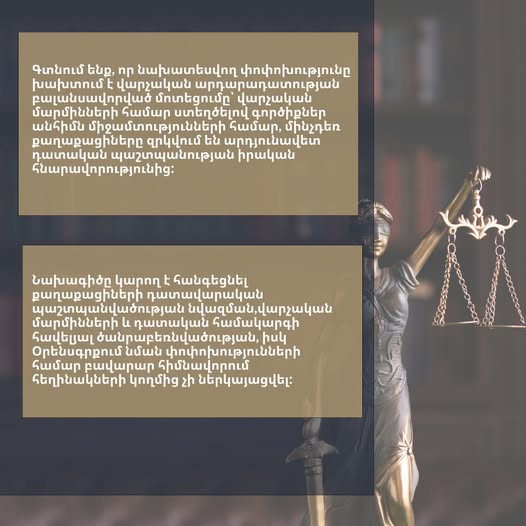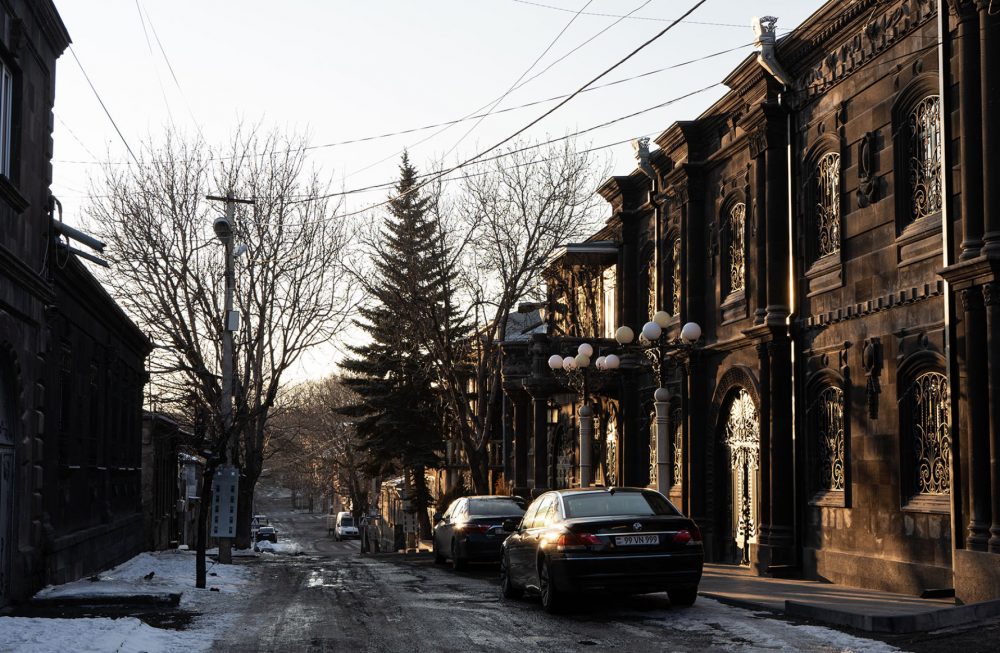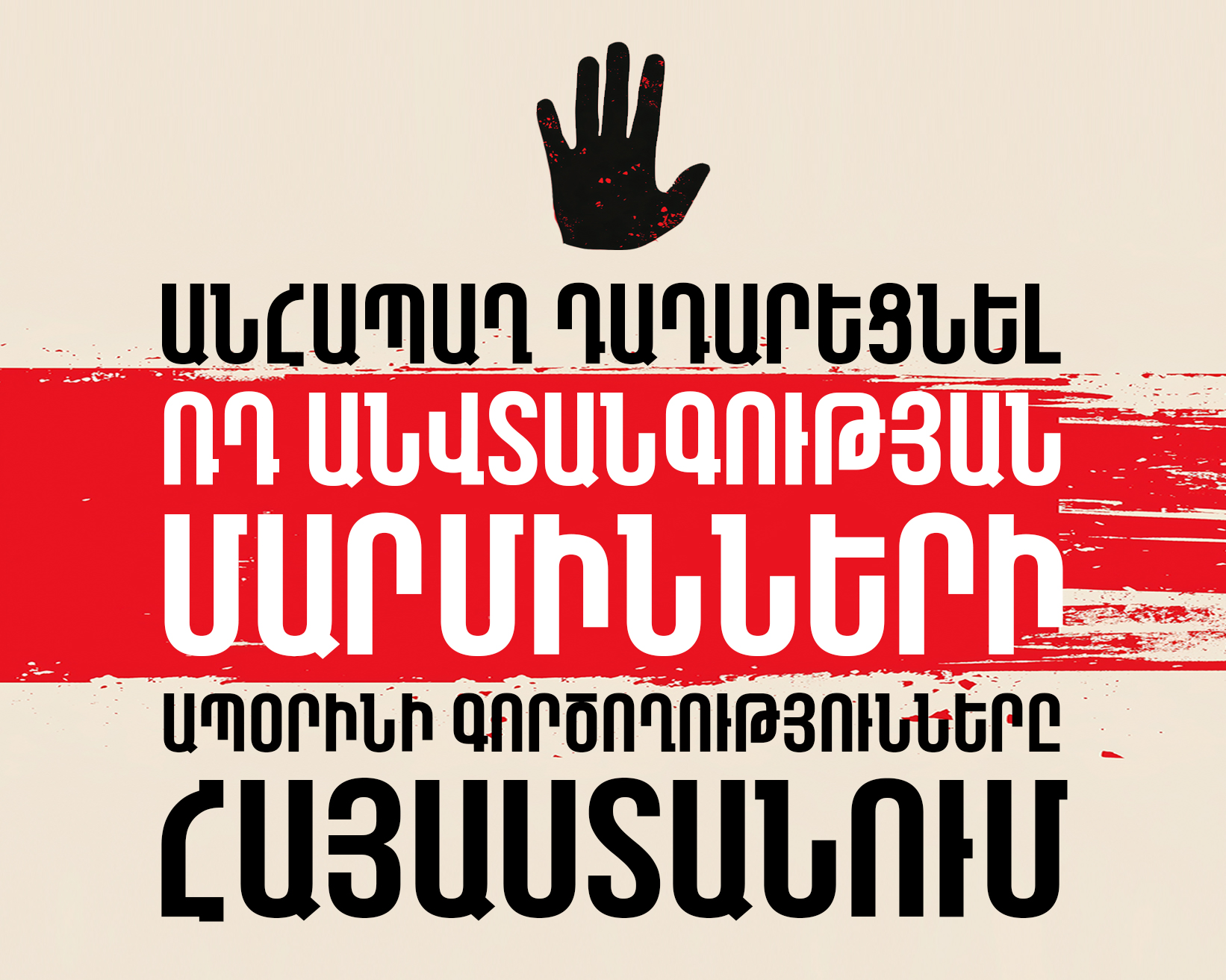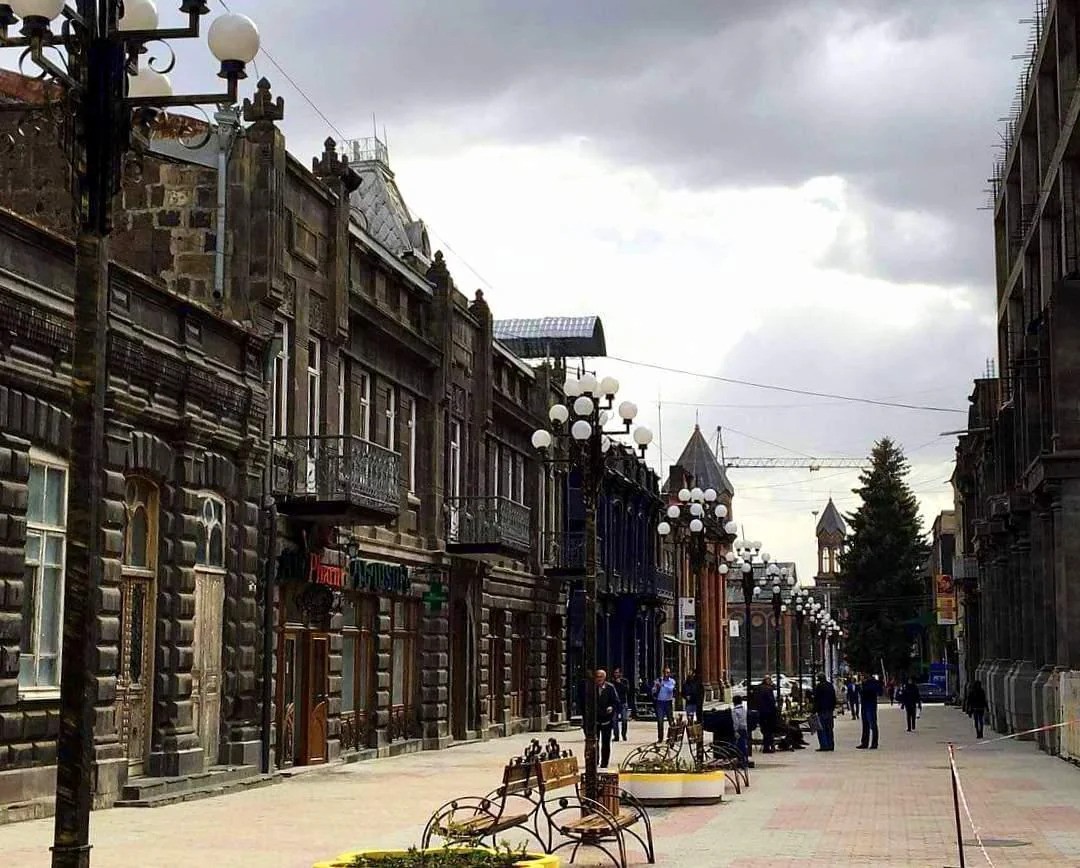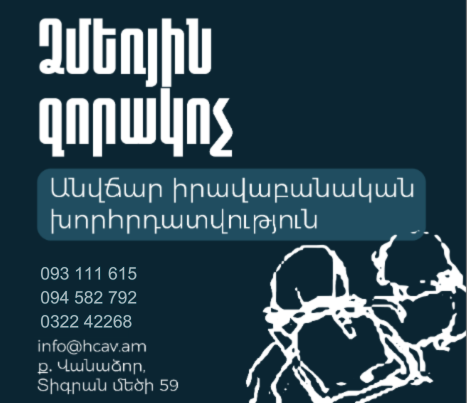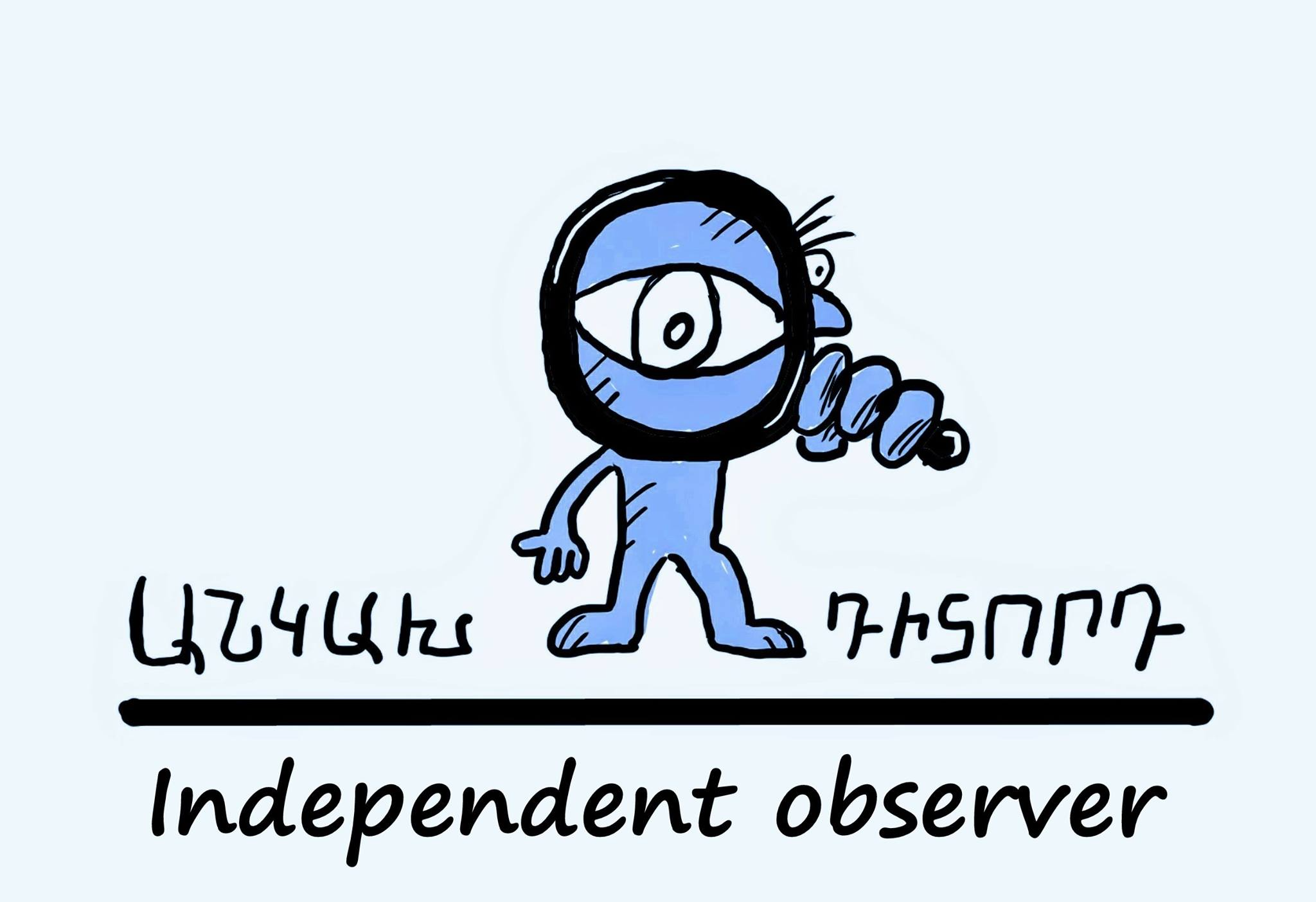




Missing persons in Armenia, Azerbaijan and Georgia from the conflicts over the Nagorno-Karabakh, Abkhazia and South Ossetia regions. PACE report

Activities | Library | Peacebuilding | Peaceful Regulation of Conflicts
Summary
Little progress has been made in solving the issue of the missing in Armenia, Azerbaijan and Georgia, notwithstanding that most of the missing disappeared in the early 1990s.
7 643 persons remain missing, including 4 604 Azerbaijanis and 947 Armenians from the conflict over the Nagorno-Karabakh region, 1 763 Georgians and 197 Abkhaz from the conflict over the Abkhazia region and 10 Georgians and 122 South Ossetians from the conflict over the South Ossetia region.
There are unconfirmed reports that some of the missing from the conflict over the NagornoKarabakh region may still be alive and held in secret detention. These reports are denied by the authorities and “administrations” concerned, but the issue continues to haunt the families of the missing and serves only to raise tension in the region.
Solving the issue of missing persons is a humanitarian and human rights issue and not a political issue. It is therefore essential that all parties to the conflict treat it in this way. Families of the missing and societies affected by the conflict will not be able to move on until progress on the issue has been made.
The families have a right to know the fate of missing relatives and the authorities and “administrations” have a responsibility to take all necessary measures to establish the fate of the missing. The rights and obligations relating to the missing are entrenched in international humanitarian law and human rights law, and are established by international customary law.
Far greater co-operation between the different parties is needed if the issue of the missing is to be solved. This co-operation needs to extend to agreeing consolidated lists of the missing, establishing a multilateral mechanism for co-operation between commissions for missing persons and working together on tracing, mapping, identification and management of human
remains.
Families of the missing need social, material and psychological support, and the memory of the missing needs to be respected.
In the realisation of its mandate under international humanitarian law, The International Committee of the Red Cross (ICRC) plays a pivotal role in assisting the authorities and “administrations” in the region, and full support should be given to the ICRC in its essential work.



